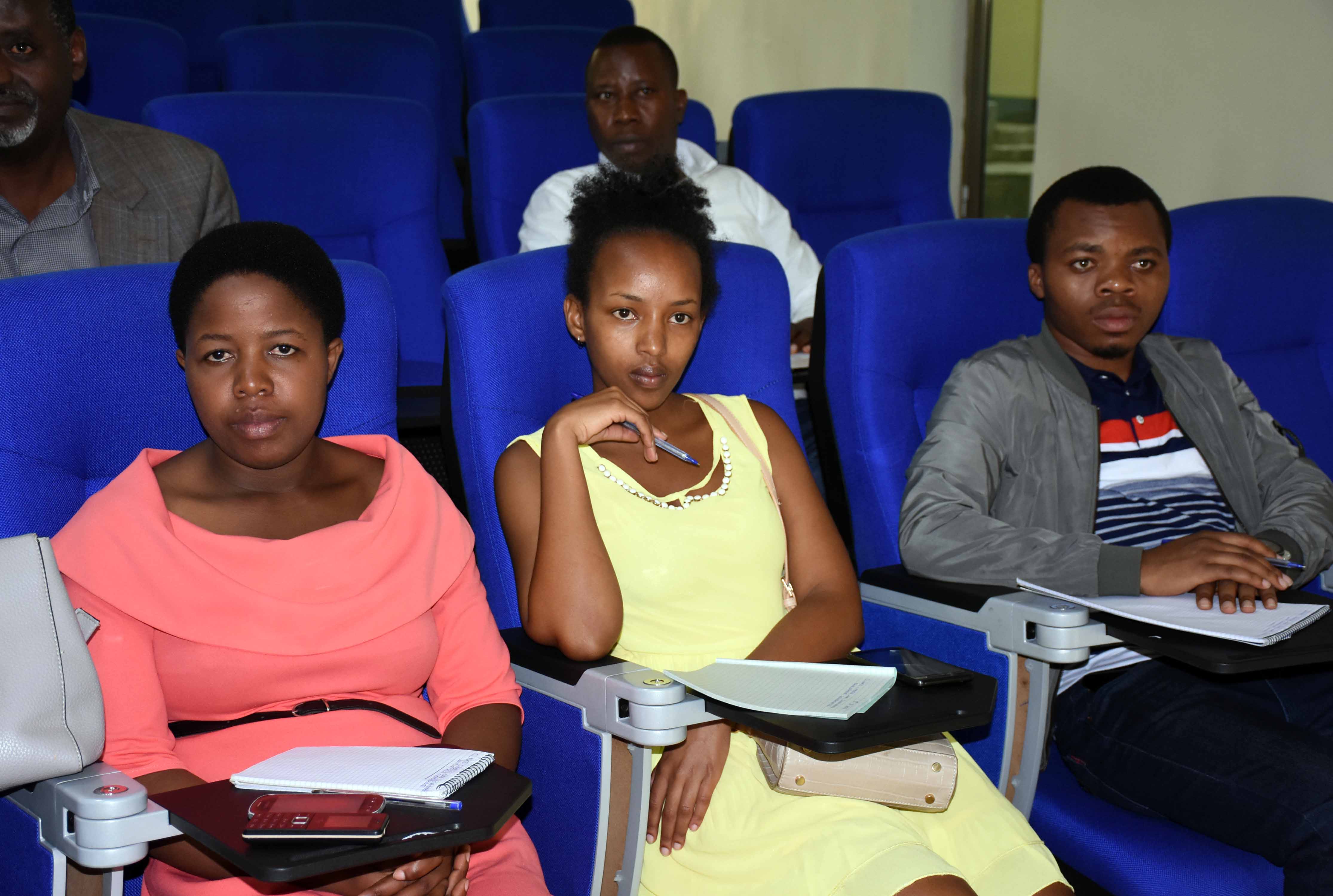
UR-Sweden Symposium showcases innovation-driven solutions to Rwanda’s pressing challenges
- 13-06-2025
- 419
A week-long training course was held at the College of Science and technology, University of Rwanda for postgraduate students in the fields of biodiversity and climate change. The training was delivered by Prof Lisa Dale from Columbia University-US and touched on global connections about climate change and sustainable development from a policy perspective.
In the course of the training, students were able link the global policy context with their scientific and technical skills, which would help them to be experts who understand the policy implication in their own fields. Students also learned about the global dimensions of where they fit and where Rwanda fits in to the global picture.
According to Prof Lisa Dale, the training facilitator, Rwanda is making tremendous strides, the fastest growing country in Africa but faces significant threats from climate change. She believes that students will figure out ways to integrate sustainable development with attention to climate change for the work they do in their own scientific fields.

Prof Lisa Dale from Columbia University delivered the course
“Rwanda has to figure out how it can continue to develop and grow and improve the quality of life of the citizens knowing that impact of climate change is real,” said Prof Lisa who came to teach the course in Rwanda as part of Fulbright programme.
Among participants in the training included Bavo Uwera, a Master student in Biodiversity Conservation and Natural resource Management at the College of Science and Technology. He noted that the course will help him to connect his expertise with policies on ground for him to be able to protect biodiversity.
“Currently, biodiversity is challenged by climate change which is the underlying cause of extinction and thus conservation is imperative for people to survive,” Uwera warned ; adding that the course will be catalyst to influence policy formulation to mitigate the effects of climate change.

Bavo Uwera (3rd right) was among the participants in the course
Uwera explained that people should understand biodiversity as everything surrounding the universe. From plants to animals they all contribute to healthy environment such as air purifying, food chain, ecosystem regulation etc. According to him, everything should be in its natural setting.
The course also featured officials from government ministries, international organizations and private sector who shared with students the work they doing with regard to climate change and sustainable development. The course was organized by the Centre of Excellence in Biodiversity and Natural Resources Management.